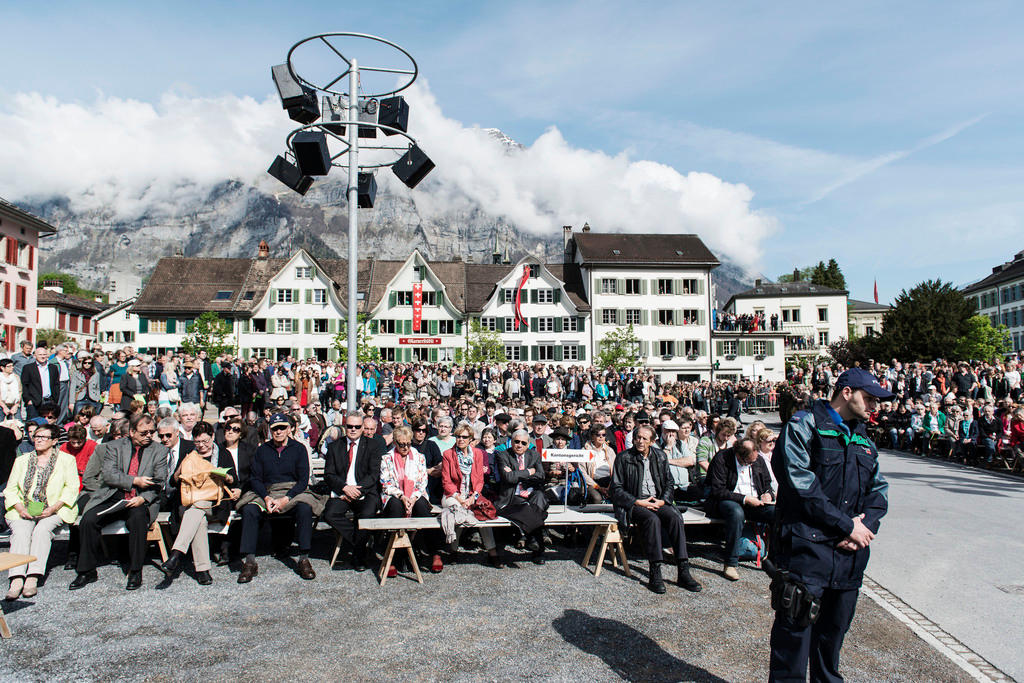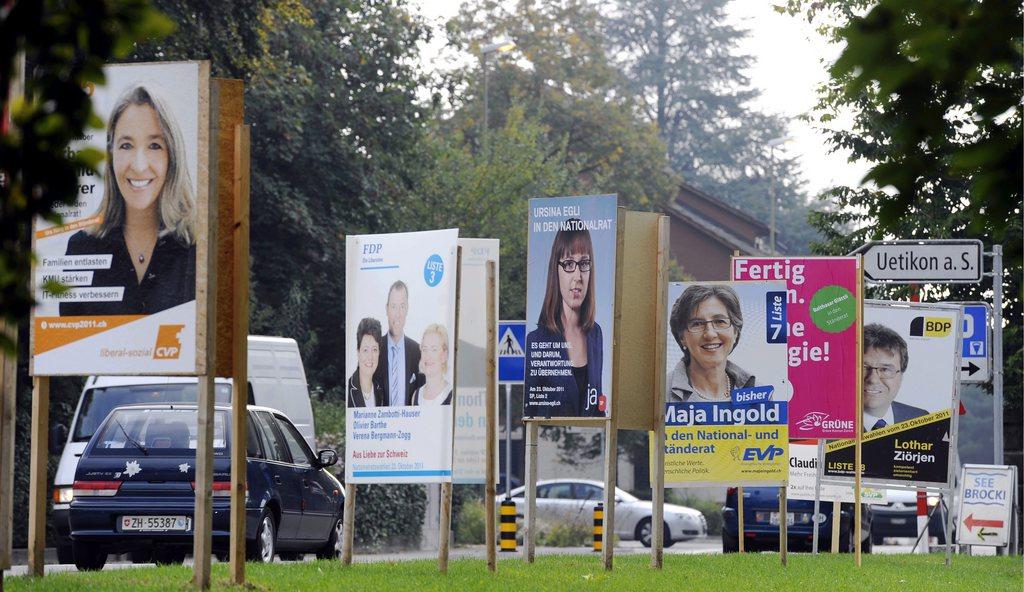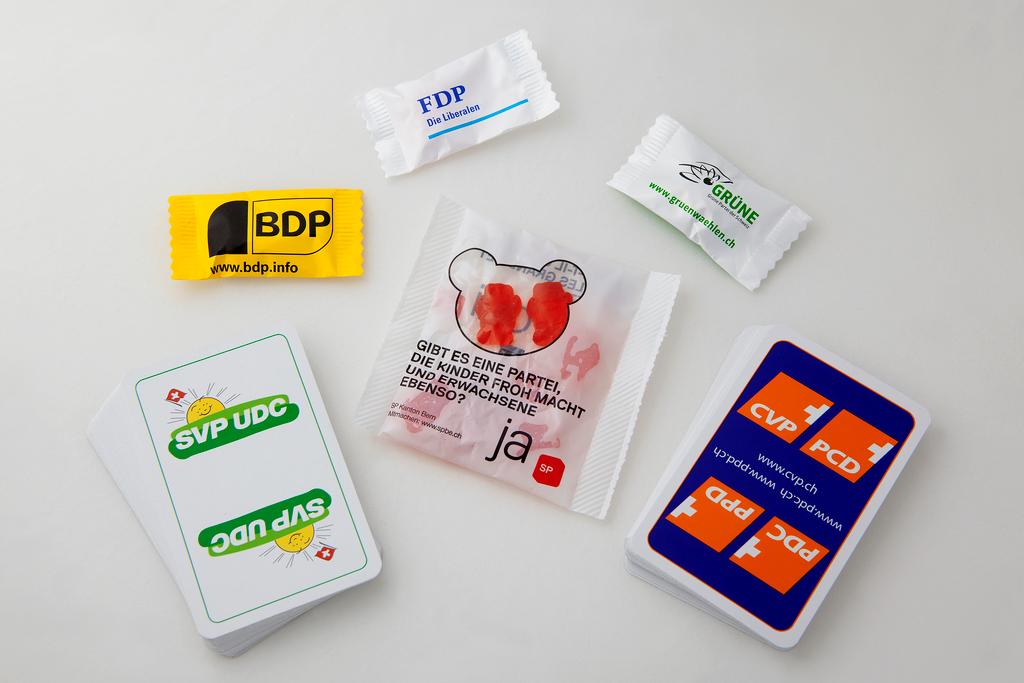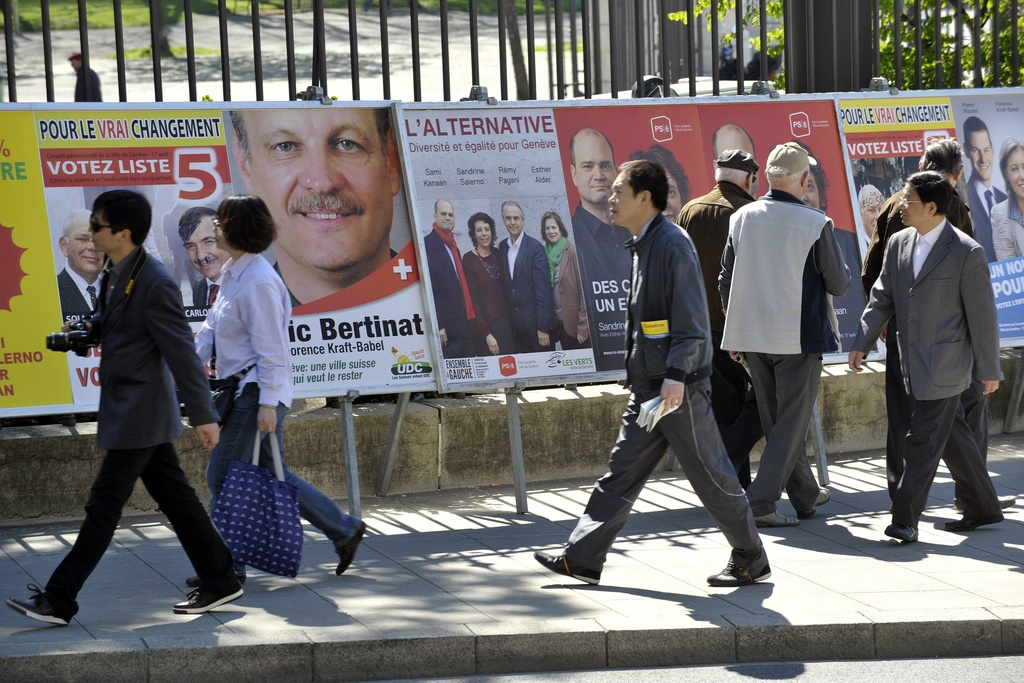Europe nudges Swiss to disclose political money

Europe’s leading human rights organisation criticises Swiss direct democracy for concealing private donations to political parties and election campaigns.
A report External linkpublished by the Council of Europe’s Group of States against Corruption (GRECO) on Thursday keeps up the pressure on the Swiss government to peel back some of the secrecy surrounding political funding.
Switzerland and Sweden remain the only members of the 47-nation organization that lack national disclosure laws about who is behind the financing of parties and elections.
An anti-corruption panel “expresses regret that the Swiss government is maintaining its position of not legislating on the transparency of party and election campaign funding,” said the councilExternal link, which has its headquarters in Strasbourg, France.
Its report finds Switzerland adopted five of 11 recommendations “but not a single one on the transparency of political funding,” it added.
Swiss intransigence
The Swiss government’s compliance with the council remains “globally unsatisfactory” and it has been asked to submit a new report to the council by the end of next April.
The council notes that Switzerland keeps insisting that its system of direct democracy ensures that parties are not the only political players, and that politics and party funding are seen as mostly a private matter. It also observes that Switzerland’s economic prosperity may play a role.
“Although it may seem surprising that a sum of a few thousand francs is deemed not large, it should be remembered that this needs to be judged in the light of the economic situation in Switzerland, where the average wage is much higher than in many member states,” the report said.
The country, however, must “fall into line regarding the transparency of political funding”, the council concluded. The report on Switzerland was led by Moldovan prosecutor Cornelia Vicleanschi and French diplomat Agnès Maitrepierre.
Switzerland likes to present itself to the world as a model democracy, and some experts say greater transparency would strengthen the credibility of its political system and protect citizens’ rights to freely form an opinion.
Donors tend to try to influence Swiss political decisions by giving targeted support to individual candidates and campaigns, rather than to parties at the national level.
Under the current system, however, no political party is obliged under federal law to disclose its budget or the names of its supporters. Three of Switzerland’s 26 cantons – Geneva, Neuchâtel and Ticino – passed certain transparency obligations.
In Ticino, for example, political parties have to inform the cantonal chancellery about donations that are CHF10,000 ($10,340) or more. In Geneva, political parties have to list their donors if they back a roster of candidates in communities with populations of more than 10,000.
Years of pressure
The Council of Europe has for years tried to pressure Switzerland to change.
Two years ago, the government came out against a law on the funding of political parties despite the council’s recommendations.
The justice ministry said then that the cabinet rejected proposals to draft a law, citing the specific nature of the Swiss political system, notably direct democracy and federalism.
It said that a uniform rule for the funding of political parties at a national level would be incompatible with federalist traditions, but Switzerland’s frequent ballot box votes and the semi-professional status of politicians in Switzerland also made such rules unnecessary.
In 2013, the council also found Switzerland’s efforts to improve transparency insufficient. And a year earlier a multi-party Swiss committee failed to collect sufficient signatures for a vote on more party funding transparency.
A new initiative was launched by the leftwing Social Democratic Party and Green Party to try to force parties to report to the Federal Chancellery on their finances, as well as on any individual annual donations received that exceed CHF10,000. The proposal also calls for contributions to be declared to political campaigns with budgets of over CHF100,000. Anonymous contributions would be forbidden and all information made public.

In compliance with the JTI standards
More: SWI swissinfo.ch certified by the Journalism Trust Initiative



You can find an overview of ongoing debates with our journalists here. Please join us!
If you want to start a conversation about a topic raised in this article or want to report factual errors, email us at english@swissinfo.ch.